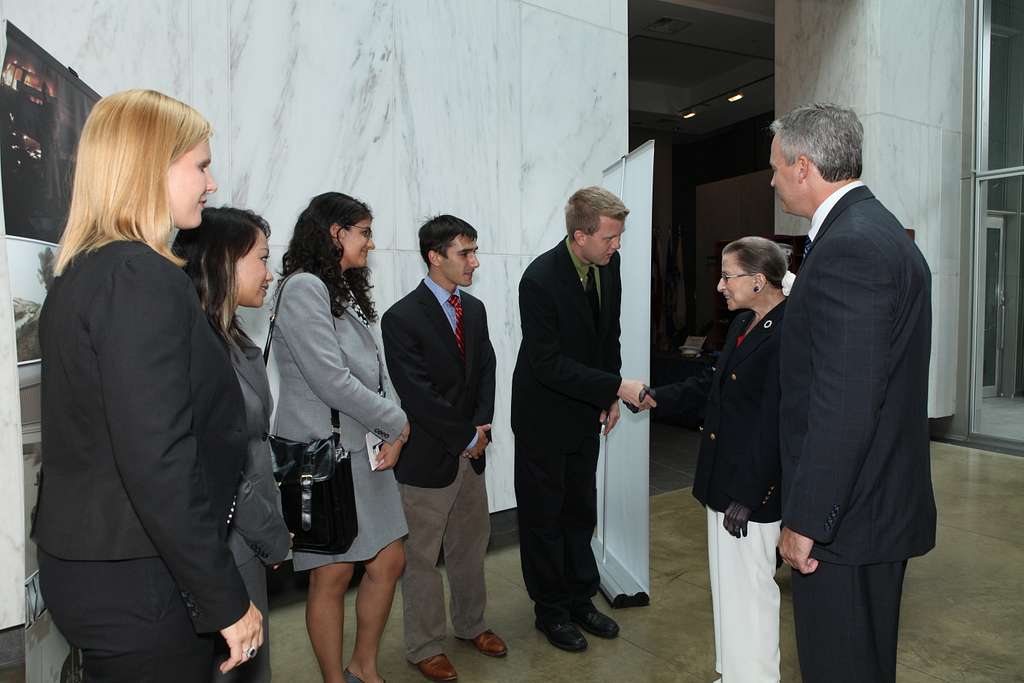Saddle Brook Surgicenter, LLC v All State Ins. Co., 2015 NY Slip Op 25099 (Civ. Ct. Bx. Co. 2015)
“Accordingly, for all of these reasons the Court holds that the “prevailing fee” as that term is used in section 68.6 is the amount permitted under New Jersey’s fee [*3]schedule. (Surgicare Surgical v National Interstate Insurance Co., 997 NYS2d 296 [Civ Ct Bx Co 2014] [holding “that when services are rendered outside of New York but in a jurisdiction which utilizes a fee schedule, the insurer complies with Section 68.6 by paying . . . the amount permitted by that jurisdiction’s fee schedule.”]).
Timeliness of Denial
11 NYCRR § 65-3.8(a)(1) provides in pertinent part that “[n]o-fault benefits are overdue if not paid within 30 calendar days after the insurer receives proof of claim . . .” Here there is no dispute that Defendant did not deny Plaintiff’s claim within 30 calendar days after it received proof of Plaintiff’s claim.
“There are substantial consequences [for] an insurer’s failure to pay or deny a claim within 30 days.” (A.M. Medical Services, P.C. v Progressive Casualty Insurance Company, 101 AD3d 53, 65 [2nd Dept 2012] citing Hospital for Joint Diseases v Travelers Property Casualty Insurance Company, 9 NY3d 312 [2007] [internal quotations omitted]). Where an insurance carrier fails to deny a claim within the 30-day period, it is generally precluded from asserting a defense against payment of that claim. (Id., citing Presbyterian Hospital in City of NY v Maryland Casualty Company, 90 NY2d 274, 282-83 [1997]). However, a narrow exception to this preclusion rule is recognized in “situations where an insurance company raises a defense of lack of coverage.” (Hospital for Joint Diseases, 9 NY3d at 318). Under these circumstances, “an insurer who fails to issue a timely disclaimer is not prohibited from later raising the defense because the insurance policy does not contemplate coverage in the first instance, and requiring payment of a claim upon failure to timely disclaim would create coverage where it never existed.” (Hospital for Joint Diseases, 9 NY3d at 318).
The test for “determining whether a specific defense is precluded . . . or available . . . entails a judgment: Is the defense more like a normal’ exception from coverage (e.g., a policy exclusion), or a lack of coverage in the first instance (i.e., a defense implicating a coverage matter)?” (Fair Price Medical Supply Corp. v Travelers Indemnity Co., 10 NY3d 556, 565 [2008] [internal citations omitted]). An example of a normal exception from coverage/policy exclusion is where the insurer alleges the billed for services were never rendered. (Id.). Thus, an insurer is precluded from raising this defense unless timely raised in its denial. (Id.). An example of a lack of coverage in the first instance is an insurer’s “founded belief that the alleged injury does not arise out of the insured incident.” (Central General Hospital v Chubb Group of Insurance Companies, 90 NY2d 195, 199 [1997]). An insurer is not precluded from raising this defense even though it failed to issue a denial within the 30 day period under Insurance Law § 5106(a) and 11 NYCRR 65-3.8(a). (Id.).
Appellate authority stands for the proposition that a defense that the provider’s bill exceeds the maximum allowed under the fee schedule is a policy exclusion defense and thus precluded if not preserved within a timely issued denial of claim. (Mercury [*4]Casualty Co. v. Encare, Inc., 90 AD3d 475, [1st Dept 2011] lve denied 18 NY3d 810 [2012] [holding fee schedule defense does not fit within narrow exception for denials based on lack of coverage]; Okslen Acupuncture P.C. v NY Central Mutual Fire Ins. Co, 37 Misc 3d 127(A) [app T 1st Dept 2012]) [holding “insurer did not timely deny the claim for first-party no-fault benefits within the prescribed 30-day period, [therefore,] it is precluded from asserting the defense that the fees charged were excessive.”]).
However, a February, 2013, amendment to the insurance regulations regarding timeliness of fee schedule defenses calls into question whether Mercury Casualty Co. and Okslen Acupuncture P.C. are still controlling authority. 11 NYCRR § 65-3.8 provides in pertinent part that:
(g)(1) Proof of the fact and amount of loss sustained pursuant to Insurance Law section 5106(a) shall not be deemed supplied by an applicant to an insurer and no payment shall be due for such claimed medical services under any circumstances:
(i) when the claimed medical services were not provided to an injured party; or
(ii) for those claimed medical service fees that exceed the charges permissible pursuant to Insurance Law sections 5108(a) and (b) and the regulations promulgated thereunder for services rendered by medical providers.[FN1]
Here the parties agree that the medical services were provided to an “injured party”, someone having a claim for benefits pursuant to New York’s statutory and regulatory no-fault insurance scheme and this case does not involve an issue under Insurance Law § 5108(a), a New York fee schedule dispute.
The relevant portion of section 65-3.8(g)(1) for this case is subsection (ii) and its reference to Insurance Law § 5108(b). This case is within the rubric of section 5108(b) because the Court is called upon to interpret 11 NYCRR § 68.6, a regulation promulgated by the insurance superintendent, and as already stated above, the Court interprets 11 NYCRR § 68.6 as requiring Plaintiff to bill for its services at the applicable New Jersey fee schedule rate for its geographic location. As such, this case involves a [*5]fee that exceeds the charges permissible pursuant to Insurance Law § 5108(b) requiring the Court to interpret and determine the applicability of 11 NYCRR § 65-3.8(g)(1)(ii).
The parties do not cite to a case interpreting section 65-3.8(g)(1)(ii) and the Court did not find such a case. Therefore, it appears to be a question of first impression whether 65-3.8(g)(1)(ii) allows an insurer to assert a fee schedule defense even though it did not issue a denial of claim within 30 days of receipt of the claim asserting that the provider billed at a rate above the amount permitted under the applicable fee schedule for the provider’s geography location.
Parsing section 65-3.8(g)(1) assists in its interpretation. 11 NYCRR § 65-3.8(g)(1) relieves insurers from the obligation to pay first party no-fault benefits under two sets circumstances. Section 65-3.8(g)(1)(i) relieves a insurer from paying a claim when the medical provider renders services to a patient who is not an injured party. (11 NYCRR § 65-3.8[g][1][i]). In other words, the insurance company is not required to reimburse a provider for medical services provided to someone who is not an accident victim as that term is understood under Insurance Law. (See Insurance Law § 5108[b]). Section 65-3.8(g)(1)(i) codifies an example of a defense that is more akin to a lack of coverage in the first instance because coverage never legitimately came into existence. (Fair Price Medical Supply Corp., 10 NY3d at 565).
The Court determines that the superintendent intended the same result for section 65-3.8(g)(1)(ii). The Court reaches this determination for two reasons. First because, the plain language of the regulation relieves an insurer of paying the provider “under any circumstances” when the claimed medical service fees exceed the permissible amount pursuant to the applicable fee schedule for the provider’s geographic location. (Klein v. Empire Blue Cross and Blue Shield, 173 AD2d 1006, 1009 [3rd Dept 1991] [noting that “[generally, the plain language used in a regulation should be construed in its natural and most obvious sense.” [citation omitted]). Therefore, “any circumstances” includes instances where the insurer fails to issue a denial rasing fee schedule as an issue within thirty days of its receipt. Second, because the preceding subsection (i) is a codification of a defense that falls squarely within the realm of defenses that are more akin to lack of coverage in the first instance. (MHG Enterprises Inc. v. City of New York, 91 Misc 2d 842, 846 [Sup Ct NY Co 1977] [reasoning that “[i]n interpreting the language of a statute or regulation, the court must give meaning to its words in the context of their particular setting.'” [quoting MVAIC. Eisenberg, 18 NY2d 1, 3 [1966]).
This interpretation of section 65-3.8(g)(1)(ii) conflicts with the holdings of Mercury Casualty Co. and Okslen Acupuncture P.C. wherein the First Department Appellate Division and Appellate Term held that fee schedule defenses are precluded if not raised in a timely issued denial. However, those cases predate the amendment to section 65-3.8(g)(1) and the Court determines that subsection (ii) abrogates Mercury Casualty Co. [*6]and Okslen Acupuncture P.C. The Court reaches this determination because “[a]n administrative agency’s exercise of its rule-making powers is accorded a high degree of judicial deference, especially when the agency acts in the area of its particular expertise” (Consolation Nursing Home, Inc. v Commissioner of New York State Department of Health, 85 NY2d 326, 331 [1995]) and where the regulation is “in harmony with the statute’s over-all purpose.” (General Electric Capital Corp. v New York State Division of Tax Appeals Tribunal, 2 NY3d 249, 254 [internal quotation and citations omitted]). Here, the regulation pertains to an area of expertise within the Insurance Division of the Department of Financial Services. (Consolation Nursing Home, Inc., 85 NY2d at 331). Furthermore, allowing an insurer to rase a fee schedule defense even though it was not preserved in a timely issued denial, is in harmony with the no-fault statute’s goal of significantly reducing “the amount paid by insurers . . . thereby helping] to contain the no-fault premium”. (Goldberg, 153 AD2d at 118; General Electric Capital Corp., 2 NY3d at 254).
For theses reasons, the Court holds that where an insurer fails to issue a denial within 30 days of its receipt rasing a fee schedule issue, under 11 NYCRR § 65-3.8(g)(1)(ii) the insurer is not precluded from raising its defense that the provider billed above the applicable amount permitted under the fee schedule for the provider’s geographic location in an action by the provider for first party no-fault benefits.”
This completely makes sense. The purpose of this regulation is to overturn Mercury v. Encare. A court has finally seen this.













2 Responses
The Appellate Term has already given the courts instruction on how to handle this, and stated (in dicta) that the new regulation removes preclusion from fee schedule defenses.
http://www.nycourts.gov/reporter/3dseries/2014/2014_51233.htm
I remember that dicta very well. It dealt with (g)(1). The fact that this had to be codified is embarrassing, but this area of law does have its share of embarrassments. This involved (g)(2) and will gives a rationale as to why the DFS can modify case law preclusion on a limited basis. I sense the constitutional argument viz whether DFS can do this will be briefed at some point, and a Civil Court JHO with a first name Jules and a last name Spodek will materialize one day and tell us that DFS could not do this. Then, you will see the NYLJ article flurrying around in arbitration submissions and opposition papers establishing this “fact”.
This case was just the beginning.